Natural Sweeteners: Alternative Sweeteners and Cane Sugar
Everybody treats himself once in a while to a piece of chocolate or a piece of cake in order to sweeten life. We consume sweets as stimulants, when we are in a bad mood, when we need to concentrate or when we want to relax.
But more and more people are trying to avoid household sugar and are looking for natural alternatives that are manufactured without major industrial processing. Compared with white sugar, these natural sweeteners also contain valuable minerals, trace elements and secondary plant compounds.
That's why we would like to introduce you to several alternative sweeteners that can also be used to prepare delicious meals:
But more and more people are trying to avoid household sugar and are looking for natural alternatives that are manufactured without major industrial processing. Compared with white sugar, these natural sweeteners also contain valuable minerals, trace elements and secondary plant compounds.
That's why we would like to introduce you to several alternative sweeteners that can also be used to prepare delicious meals:
„Without sugar,
life would be only half as sweet.“
Sugar is held responsible for excess weight, caries and numerous other diseases. Therefore, it is very important to consume sugar consciously. This does not mean to sacrifice sugar completely, but to adopt sugar consumption to today’s lifestyle in the context of a well-balanced diet that is combined with sufficient exercise.
Then, you can treat yourself from time to time to something sweet.
life would be only half as sweet.“
Sugar is held responsible for excess weight, caries and numerous other diseases. Therefore, it is very important to consume sugar consciously. This does not mean to sacrifice sugar completely, but to adopt sugar consumption to today’s lifestyle in the context of a well-balanced diet that is combined with sufficient exercise.
Then, you can treat yourself from time to time to something sweet.
Portrait of alternative sweeteners
| Coconut flower sugar | Coconut flower syrup | Date sweetener | Date syrup | Maple syrup | Sugar cane molasses | |
| Flavor | delicate caramel flavor | subtle caramel aroma | subtle natural flavor, reminiscent of caramel | fruity natural flavor | Grade A: mild, delicate and aromatic Grade C: strong aromatic taste, reminiscent of caramel |
strong natural taste, malty, slight taste of licorice, slightly bitter |
| Valuable ingredients | rich in minerals such as potassium and calcium | rich in minerals such as potassium and calcium | rich in minerals such as potassium, calcium, magnesium and iron | rich in minerals such as potassium, magnesium and iron | rich in minerals such as potassium, calcium and magnesium | rich in minerals such as iron, magnesium, potassium and calcium |
| Sugar content (sugar 99.8%) | 89% | 77% | 73% | 70% | 60-67% | 60% |
| Sweetening power compared to sugar (=100%) | slightly lower 90% |
slightly higher 120% |
slightly lower 75% |
slightly higher 120% |
slightly higher 120% |
lower 60% |
| Energy (sugar: 400 kcal) | 385 kcal | 317 kcal | 330 kcal | 289 kcal | 269 kcal | 294 kcal |
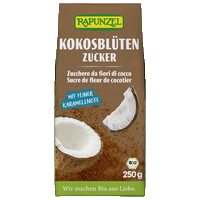
Coconut Flower Sugar
Origin and preparation
Rapunzel Coconut Flower Sugar is traditionally produced in Indonesia. The flower buds of the coconut palm are incised so that the coconut flower syrup can leak out. The nectare is collected in containers and boilt in order to recover the coconut flower sugar crystals. Finally, the coconut flower sugar is dried and sieved.
Use
For desserts, baked goods, hot drinks and cocktails.
Special facts about Rapunzel Coconut Flower Sugar
Coconut flower sugar is the sweetener with the lowest glycemic index. It is made from pure coconut flower sap. With its subtle, but nevertheless distinct caramel flavor it is an ideal alternative sweetener. Its low glycemic index and valuable minerals such as potassium make it a good alternative to conventional sugar.
Rapunzel Coconut Floyer Sugar is traditionally produced by Indonesian farmers and provides them with a fixed and steady income.
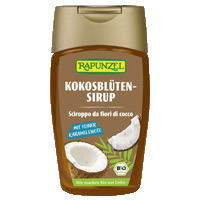
Coconut Flower Syrup
Origin and preparation
Coconut flower syrup is also produced in Indonesia. Like coconut flower sugar, the syrup is recovered from incised flower buds. The collected nectare is carefully thickened in order to obtain the syrup.
Special facts about Rapunzel Coconut Flower Syrup
In addition to a high concentration of potassium and other valuable minerals, Rapunzel Coconut Flower Syrup convinces with its fine caramel flavor. It can be easily dissolved in warm and cold liquids alike making it perfect for refreshing summer drinks or cocktails.
Use
For the sweetening of drinks, muesli, for baking and for desserts.
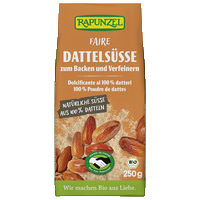
Date Sweetener
Origin and preparation
Date sweetener is made from 100 % dried dates. Prior to drying, the dates are pitted and heated with water steam. Finally, the dried dates are ground into fine date sugar. Thanks to its subtle, inobstrusive natural flavor, date sweetener can be used in a great variety of ways.
Use
Great for baking or the refining and sweetening of different meals, in joghurt and muesli but also for Oriental dishes or Ayurvedic breakfast variations.
In baking recipes you can completely replace sugar with date sweetener. Date sweetener has, however, a more subtle sweetening power than cane sugar.
HAND IN HAND partner CCF in Tunisia
Rapunzel has been procuring dates from CCF (Centre des Conditionnement de Fruits) in Tunisia since 2003. CCF has specialized for many years in the cultivation and processing of dates and produces only dates in organic quality.
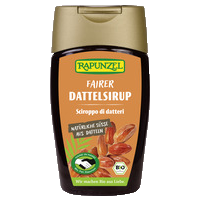
Date Syrup
Origin and preparation
Date syrup has already been an important sweetener in the ancient Orient. For its preparation, dates must be pitted, soaked in water and thickened. Finally, the date mass is filtered and concentrated until a dark syrup is obtained.
Use
Perfectly suited for sweetening of tea, smoothies and other drinks. Date syrup can also be used for baking, for desserts, joghurt and muesli, but also for the preparation of sweet-sour marinades, for Oriental dishes or for Ayurvedic breakfast variations.
Date syrup has a greater sweetening power than household sugar. Therefore, it can be used more sparingly.
Its natural taste is very typical and resembles the natural taste of molasses. Try date syrup for bringing new, fruity aromas into your dishes.
HAND IN HAND with CCF
Most of the workers in the CCF processing plant are females. All workers receive a permanent salary and social security. CCF has a company-owned cafeteria and provides free health care to all its employees.
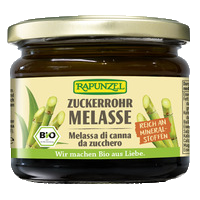
Sugar Cane Molasses
Origin and preparation
Molasses is a dark brown, viscous syrup that is a valuable byproduct of sugar production. For the preparation of cane sugar, sugar cane juice is thickened and combined with sugar crystals. The crystallized sugar is separated by centrifugation and the valuable molasses is recovered.
The sugar cane that is used for Rapunzel Molasses comes from controlled organic cultivation in Paraguay.
Use
Great for distinct-tasting foods such as gingerbread, whole meal pastries, sauces and marinades. Also suited for muesli, dissolved in hot milk or in apple sauce.
Special facts about Rapunzel Sugar Cane Molasses
Sugar cane molasses contains a multitude of minerals, trace elements and amino acids. Its high sugar content (about 21% invert sugar and 33% saccharose) makes molasses an excellent energy supplier. With its high concentration in iron, magnesium and potassium, sugar cane molasses is also perfect for active people and athletes.
Molasses has been used for centuries in naturopathy and is often called "black miracle". It has a very strong natural taste and a malty flavor that reminds of licorice.
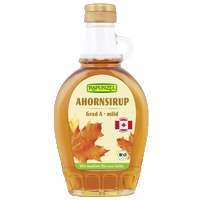
Maple Syrup
Origin and preparation
The sweet maple tree sap is available in different grades, either with a mild (grade A) or a stronger natural taste (grade C). Maple syrup has a fine, sweet caramel flavor. Rapunzel Maple Syrup is produced in Canadian maple forests near the city of Quebec.
Maple trees must be at least 40 years old before they can be tapped for sap for the first time. A tree gives only the amount of sap that it can spare. For the production of 1 liter of maple syrup, about 40 to 45 liters of maple sap are needed.
Use
For pancakes, waffles and cake, in your muesli or for the sweetening of tea and cold drinks as well as for joghurt or icecream (especially vanilla or nut-flavored icecream): maple syrup is very versatile. Its delicate flavor can even refine salad dressings, soups and hearty vegetable dishes.
Special facts about maple syrup
Depeding on the harvest time, maple syrup is divided into different quality grades. The earlier the harvest, the lighter its color and the finer and milder its quality.
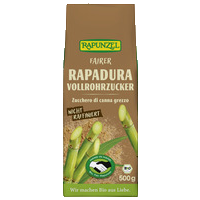
Rapadura Whole Cane Sugar
Origin and preparation
Rapadura Whole Cane Sugar is made from pure sugar cane juice. The juice is pressed and carefully thickened, dried and ground. Whole cane sugar is not refined and the natural sugar cane compounds and valuable minerals are mostly preserved. The traditional preparation and its pleasant caramel flavor are characteristic for whole cane sugar.
Rapadura Whole Cane Sugar is a fair-trade product that is produced by our HAND IN HAND partners from Brazil, Paraguay and Costa Rica.
Use
With its fine flavor, Rapadura Whole Cane Sugar is great for the sweetening of drinks, desserts and pastries giving them a fine, aromatic note. Rapadura Whole Cane Sugar and the taste of hazelnuts complement each other perfectly.
HAND IN HAND partner PLANETA VERDE in Brazil
Since 1989, Rapunzel has been procuring Rapadura Whole Cane Sugar from Planeta Verde, a small, 100% organic sugar plantation with sugar mill that is located in Brazil.
The significance of HAND IN HAND
All the workers at the sugar mill are permanently employed and receive a steady salary above the Brazilian minimum wage.
In addition, the workers get free health care, free education and on-going vocational training.
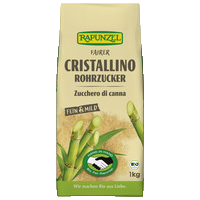
Cristallino Cane Sugar
Origin and preparation
The crystalline cane sugar has a pleasantly mild, rather neutral aroma. It is made from pure sugar cane juice. Compared to whole cane sugar, cane sugar is produced through the addition of sugar crystals and simultaneous removal of the remaining molasses. This process is carried out only once. Therefore, a small amount of molasses remains in the product and gives cane sugar its light golden color. Cristallino Cane Sugar is fair-trade and comes from Paraguay.
Use
With its neutral flavor, Cristallino Cane Sugar is well suited for the sweetening of drinks, for pastries, salad dressings, hearty dishes and many more.
HAND IN HAND partner MANDUVIRA in Paraguay
Rapunzel has been procuring fair-trade Cristallino Cane Sugar from the Manduvira Cooperative in Paraguay since 2011. Manduvira is the only cooperative in Paraguay that cultivates, processes and exports organic sugar cane.
The significance of HAND IN HAND for the farmers
At Manduvira, peasants are responsible for the cultivation of sugar cane, its processing and export. The cooperative profits from the cooperation with Rapunzel because of the long-term trade relations. The HAND IN HAND bonus finances both machinery and social benefits for the peasants. Additionally, the bonus is also used for education and training of the peasant families.
Which sugar and minerals are in it?
| Information per 100 g | White sugar (refined) | Date syrup | Coconut flower syrup | Maple syrup (grade C) | |
| Carbohydrates | 99.8 | 70.0 | 78.0 | 67.0 | |
| Sugar | 99.8 | 70.0 | 77.0 | 60.4 | |
| Glucose | - | 21.9 | 1.4 | 1.6 | |
| Fructose | - | 21.6 | 1.0 | 0.5 | |
| Saccharose | 99.8 | 26.3 | 74.6 | 58.3 | |
| Sorbit | - | - | - | - | |
| Minerals. | |||||
| Potasssium | 2 mg (0.1 %*) | 664 mg (33 %*) | 820 mg (41 %*) | 212 mg (11 %*) | |
| Calcium | 1 mg (0.1 %*) | 78 mg (10 %*) | 129 mg (16 %*) | 102 mg (13 %*) | |
| Magnesium | - | 59 mg (16 %*) | 27 mg (7 %*) | 21 mg (6 %*) | |
| Iron | 3 mg (0.3 %*) | 2.2 mg (16 %*) | 0.12 mg (0.9 %*) | 0.11 mg (0.8 %*) | |
% of reference amount. Credit: Fachliteratur und Analysen
For your inspiration: cooking and baking with alternative sweeteners

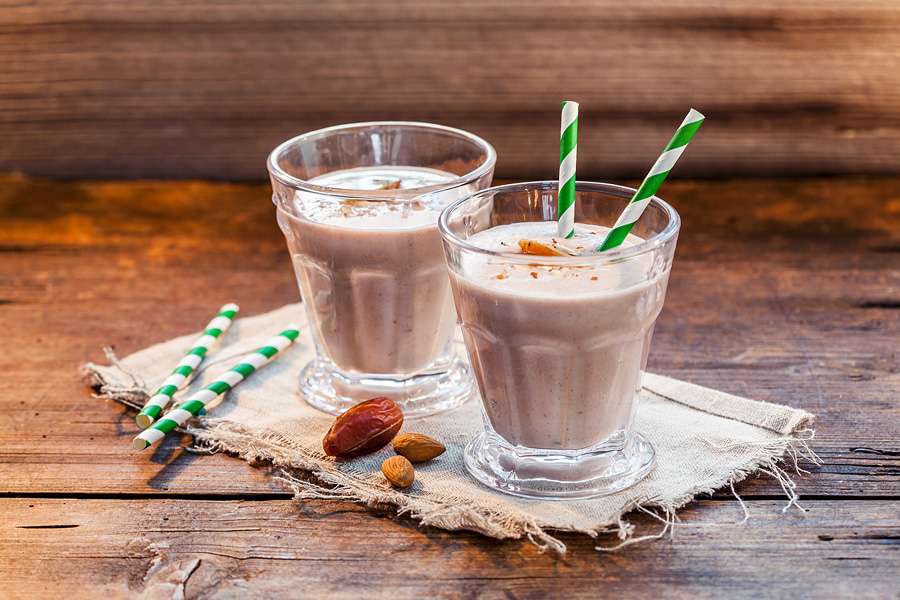
Date-almond shake
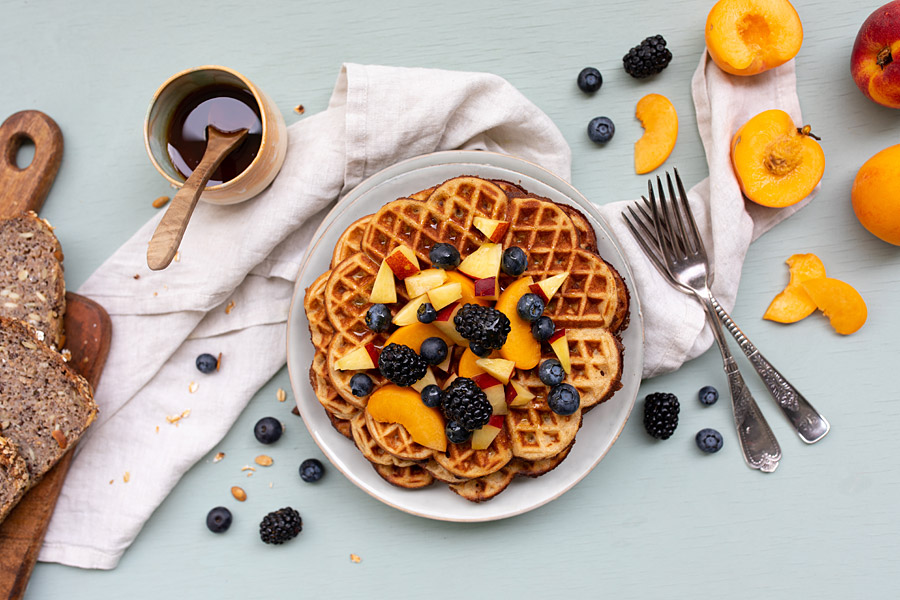
Bread waffles
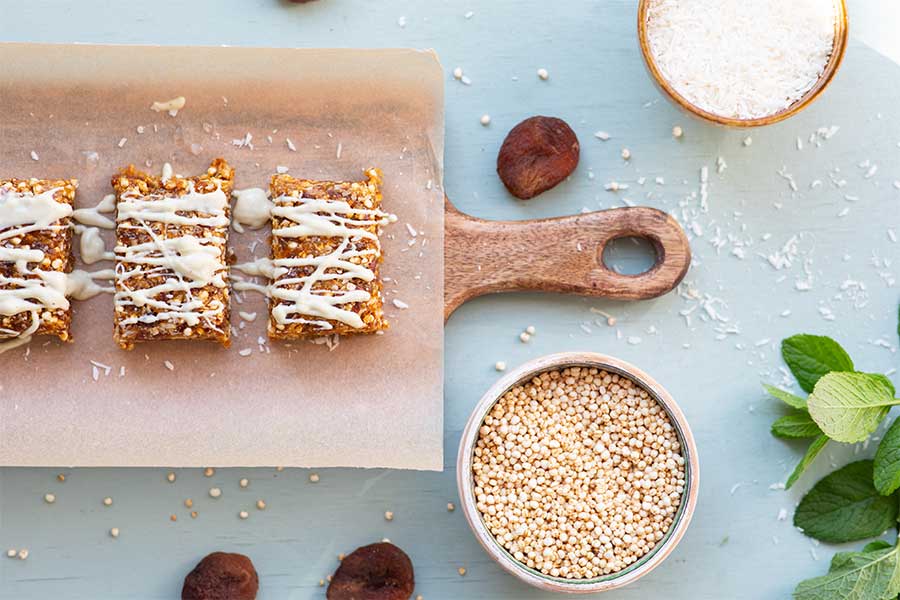
Apricot coconut bars with quinoa and white chocolate

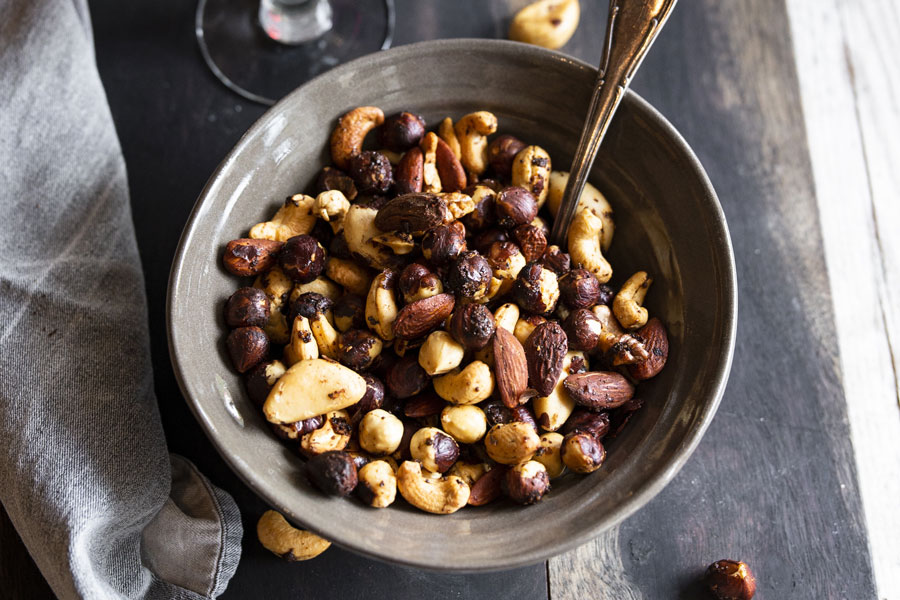
Roasted espresso nuts

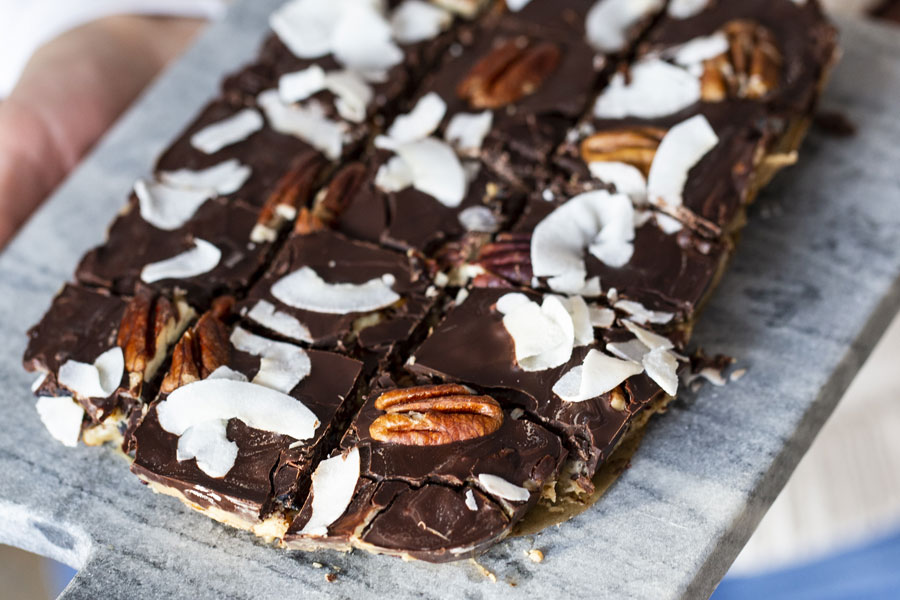
Chocolate bars of puffed rice, Pecan nuts and coconut chips


Silky orange cream with candied chocolate oranges

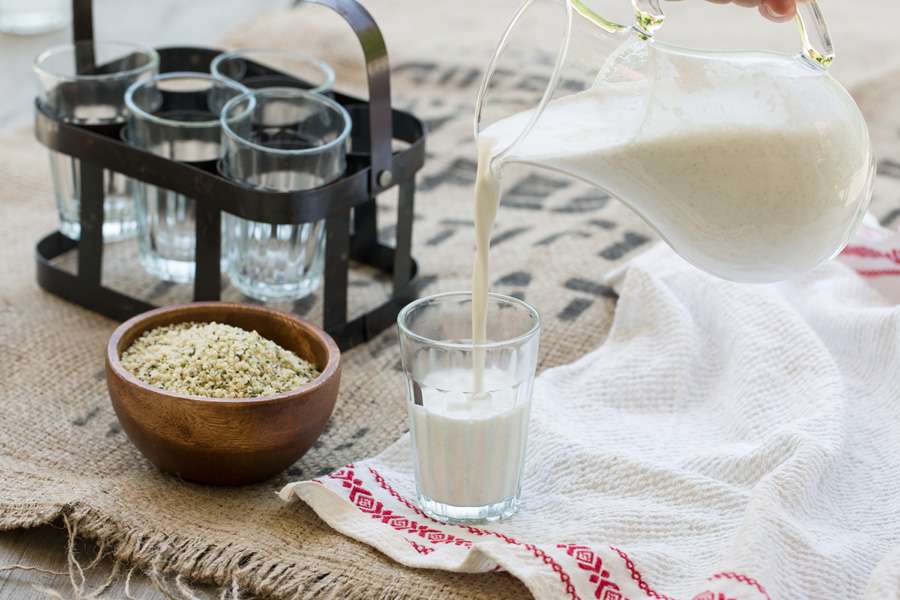
Homemade hemp milk

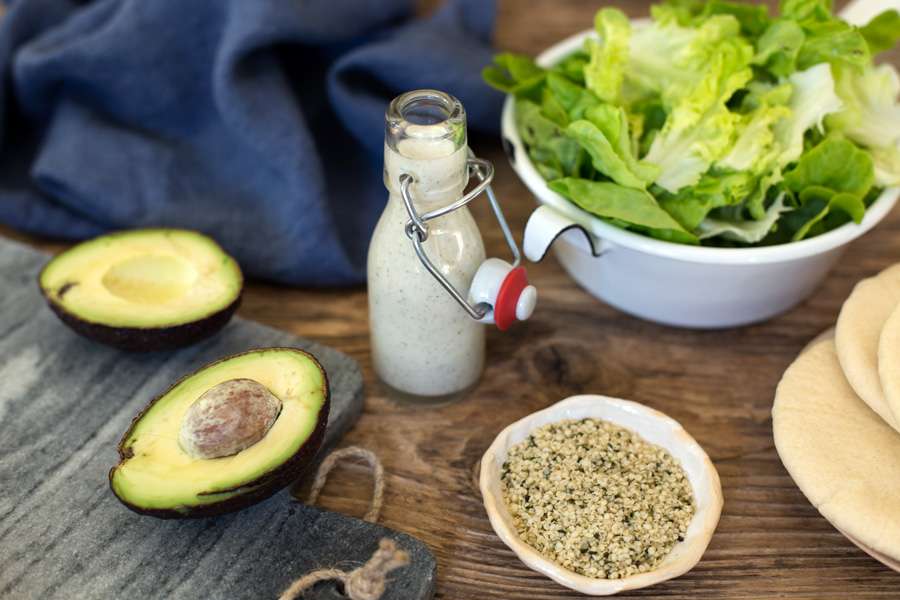
Hemp salad dressing
